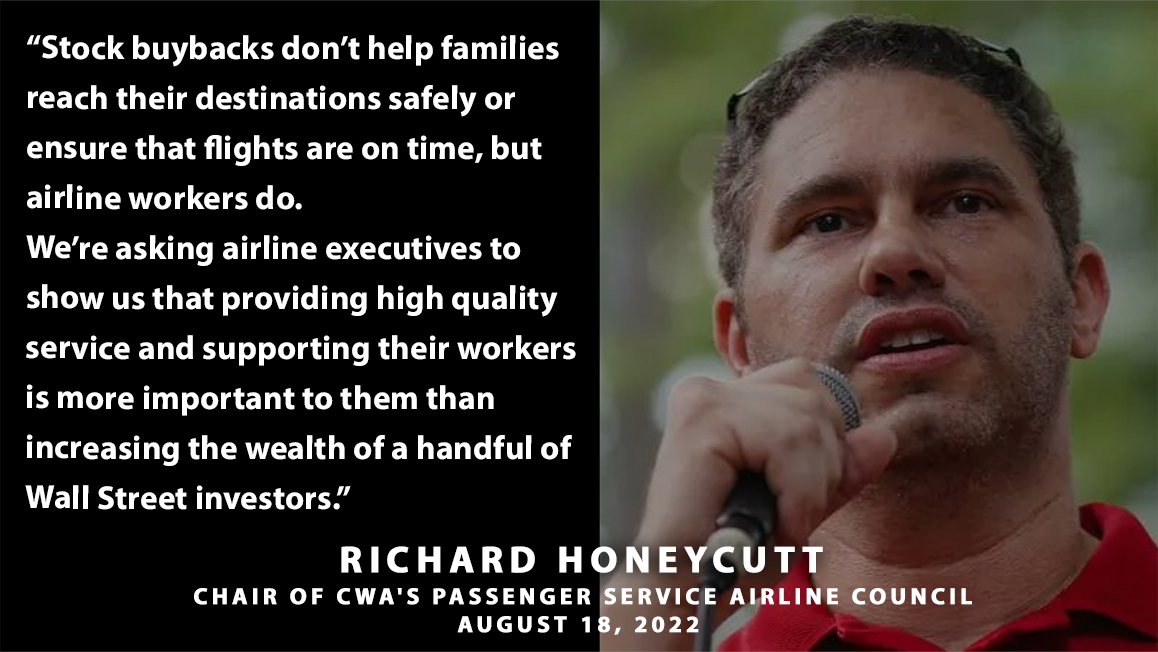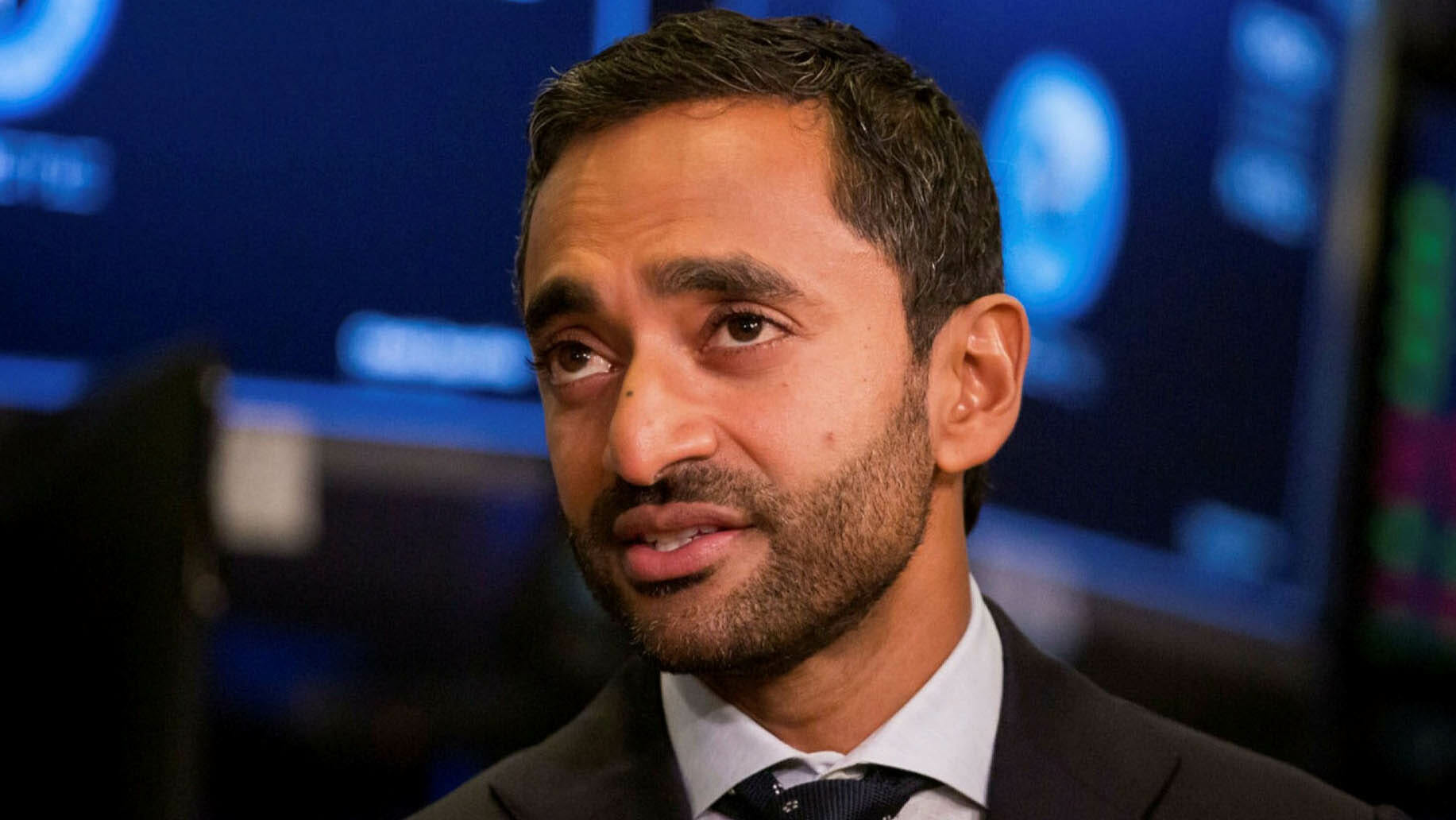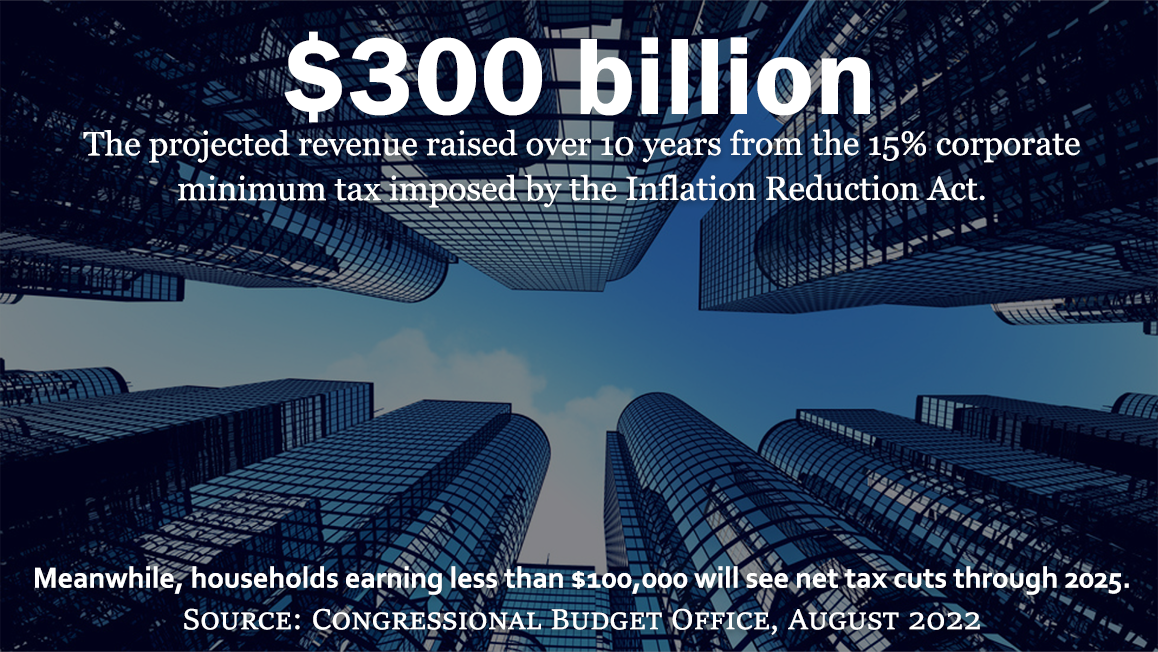| THIS WEEK |
We are now witnessing, Sen. Bernie Sanders declared at a rally alongside national union leaders over the weekend, the “rebirth of the American trade union movement.” Growing that movement, he added, will bring working people
economic power, dignity, and “something more.”
That “something more” — the power of collective action to reshape a nation — could hardly be more crucial now, particularly with historic midterm elections on the horizon and a chance to really build upon the just-enacted Inflation Reduction Act.
With our ever growing inequality, it’s no wonder we’re witnessing a resurgence of the labor movement, a resurgence of the will to build “something more.”
So many of us are sensing these days that we have before us an opportunity — and moral obligation — to build a world that works for us all, to rein in corruption and greed. Let’s do it!
Chuck Collins and Rebekah Entralgo,
for the Institute for Policy Studies Inequality.org team
|
|
| |
|
| INEQUALITY BY THE NUMBERS |
 |
|
|
|
| |
|
| FACES ON THE FRONTLINES |
 |
| Congress Weighs a Domestic Workers Bill of Rights |
Last month, an anonymous domestic worker in Seattle won a historic settlement for her undercompensated, undervalued work: $71,610.03. Thanks to the city’s Domestic Workers Ordinance — a statute which guarantees workers’ access to safer work conditions and recourse for unfair treatment — the worker felt her battle for fair treatment was “worth the risk.”
Weeks later, Congress held its first hearing on a National Domestic Workers Bill of Rights, legislation that would extend the crucial worker protections in Seattle, Philadelphia, and 10 other states into the law of the land. Domestic workers, mostly women of color, have been excluded from federal labor laws for more than 80 years. They've been taking home unlivable hourly wages while facing danger and precarity at work.
Dana Barnett, an organizer and member of Seattle’s Domestic Workers Standards Board, argued before Congress that Bill of Rights legislation benefits employers as well as workers. Noted Barnett: “Just bringing recognition to employers that home is a workplace helps create a better one.” Inequality.org’s Bella DeVaan has more. |
|
| |
|
| WORDS OF WISDOM |
 |
|
|
|
| |
|
PETULANT PLUTOCRAT
OF THE WEEK |
 |
| A Fad Fades, Leaving Behind Only a Grand Fortune |
| The 45-year-old Chamath Palihapitiya likes to see himself as the heir apparent to plain-spoken mega-billionaire Warren Buffett. But this “SPAC” king has always displayed far more in-your-face flair than Buffett ever has. At the height of Wall Street’s recent boom in SPACs — “Special Purpose Acquisition Companies” — Palihapitiya was tweeting his triumphs off in bursts, dropping f-bombs, and quoting Jay-Z. SPACs operate by convincing affluents to put their dollars in “blank check” investment funds that then merge with existing firms, a maneuver that lets each SPAC sell shares without having to go through any “rigorous scrutiny by banks and regulators.” Palihapitiya rode the SPAC wave to a billionaire fortune. But that wave has now crashed, and new regs now under study may make SPACs a thing of the past. From Palihapitiya, meanwhile, Wall Street is seeing no more “of the braggadocio” from the days when SPACs, as Bloomberg puts it, seemed “a sure-fire money-minting machine.” |
|
| |
|
| BOLD SOLUTIONS |
 |
| City and State Baby Bonds to Narrow Racial Divides |
During his 2020 presidential bid, Senator Cory Booker focused a national spotlight on “baby bonds,” or government trust funds for children that adults can use for investments in higher education, homes, or businesses. By using a sliding scale for contributions, such programs can go a long way towards narrowing our nation’s staggering racial wealth divide.
Several states and municipal governments are now moving ahead on the baby bonds notion. Connecticut approved a baby bonds program in 2021, and low-income children in that state will now have an estimated $10,000 nest egg by their 18th birthday. Last year, Washington, D.C. and New York City also approved baby bonds efforts.
Most recently, California last month allocated $100 million to seed trust funds for two groups of particularly disadvantaged children: kids from low-income families who’ve lost a primary caregiver to Covid-19 and young people in long-term foster care. Institute for Policy Studies Next Leader Rebecca Karpen has more. |
|
| |
|
| GREED AT A GLANCE |
 |
|
|
|
| |
|
| TOO MUCH |
 |
| Should We Let Scam-Artists ‘Educate’ Our Young? |
| Just over 200,000 young American men and women — all students defrauded by a now defunct for-profit trade school — received some welcome news earlier last week on their student loans. The Biden administration has just erased the $3.9 billion these students owe the U.S. Department of Education. A happy ending to a sordid story? Not quite. The villain in this tale, the ITT Technical Institute trade-school chain, spent years systematically enriching its top execs and investors at student expense. The CEO who orchestrated that fleecing remains at large and a millionaire many times over. How can we prevent similar scams? By confronting our deep-seated concentration of corporate wealth. Inequality.org’s Sam Pizzigati has more. |
|
|
|
| |
|
| MUST READS |
What's on Inequality.org
Sarah Anderson and Brian Wakamo, The Huge Pay Gaps at Low-Wage Federal Contractors. New federal contracting standards could incentivize corporations to narrow the economic divides that undermine employee morale and business effectiveness.
Elsewhere on the Web
Mike Rogoway, CEO pay keeps soaring, defying Congress and local taxes, Oregonian. Top corporate execs are continuing to give their own paychecks top priority, show the results from Portland’s six-year-old tax on wide CEO-worker pay gaps.
Mara Siegler, Water company shames the Hamptons’ billionaire water hogs, Page Six. The average Suffolk County home on New York’s Long Island uses 130,000 gallons of water a year. One billionaire Southampton mansion gulped down seven million gallons last year.
Horacio Silva,Billionaires on Social Media Are Flexing Their Fortunes with Abandon, Town & Country. Captains of industry used to at least pretend to be discreet. No more!
Ralph Nader, Watch Out for Big Corporations and Dangerous Politicians Breaking Our Established Norms, CounterPunch. In Nader’s 1940s schoolboy days, top CEOs kept their pay at about 12 times average worker pay. Those CEOs did not dare to risk arousing union and public anger.
Angela Symons, Only rich tourists welcome as these 6 countries take controversial step to stamp out overtourism, EuroNews. Will travel become reserved for the super rich?
Dom DiFurio, What the 10 Largest Retailers Pay Their Workers, Good Men Project. From Walmart to Apple, a look at the massive pay gaps at America’s biggest chain stores.
Elias Rodriques and Clint Williamson, Organized Plunder, The New Inquiry. In the absence of the tax dollars city governments rely on, American cities are now funding themselves by fining the poor instead of taxing the rich.
Steve Cohen, We Can Make the Super Rich Pay Their Fair Share, Newsweek. The ultra wealthy meticulously evade taxes by living off the growing value of assets that only get taxed if sold. Paychecks, by contrast, get taxed annually. |
|
| |
|
| A FINAL FIGURE |
 |
|
|
|
| |
|
| BE THE 1% (NO, NOT THAT 1%) |
 |
Our goal for 2022: that 1% of our Inequality.org subscribers become monthly sustainers and help grow our newsletter and research efforts. Be the 1%, for as little as $3 a month! |
|
|
|
| |
|
|